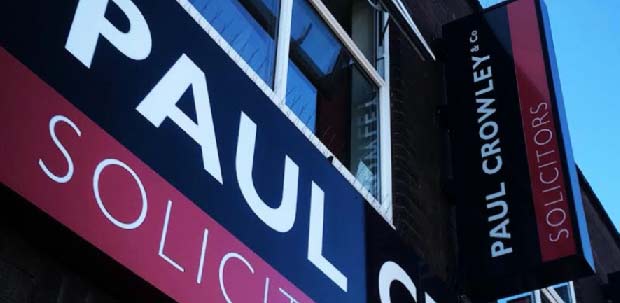An increasingly relevant issue in the UK relating to domestic abuse is forced marriage. If you think you or someone you know, may be entering into a marriage under duress or without their full consent, Paul Crowley & Co’s friendly team of Family Law experts are here to help.
What is a forced marriage?
The definition of forced marriage in the UK, is a marriage that takes place without the free and full consent of either one or both of the parties to a marriage. The force doesn’t need to be physical and can involve emotional, financial and psychological pressure.
These marriages are still common in areas such as South and East Asia and Africa, but forced marriages can happen to people of any gender or sexuality, in any part of the world.
What is the difference between an arranged marriage and a forced marriage?
Forced marriage
A forced marriage involves the marriage being arranged for the parties and them being forced through various means to consent to the partnership.
Arranged marriage
In an arranged marriage, which is still common and accepted practice in some cultures and religions such as Islam, the parties may not have an active role in organising the marriage but nonetheless consent to it freely.
This is usually because they believe their parents, or whoever arranges their marriage, can choose an appropriate partner for them without their input.
It’s important to remember that the arrangement of a marriage for someone does not mean they are being forced to marry the person.
Speak to a lawyer now…
If you require expert legal advice and would like to speak with a member of our family law team, call Paul Crowley & Co on 01512646588
How to get a forced marriage protection order
If you or someone you know is being forced into a marriage, or if you are already in a forced marriage you can apply to the Family Court for a forced marriage protection order (FMPO) under the Forced Marriage (Civil Protection) Act 2007. The family law team at Paul Crowley & Co can arrange a FMPO for you.
Each order is different and contains provisions designed to help you, such as making it so nobody can take you out of the UK. The court can also make emergency orders without notice to the person they are being made against if this is needed.
Breach of a forced marriage protection order
Although the application is made at Family court, s63CA of the Family Law Act 1996 (FLA) which came into force in 2014 made it law so that breaching an FMPO is a criminal offence with a maximum penalty of 5 years imprisonment.
When this happens, the police investigate the breach and the Crown Prosecution Service (CPS) will decide whether to prosecute based on whether there is a realistic prospect of conviction and, if so, whether convicting this person is in the public interest.
If the CPS decides not to prosecute, you can still apply to the Family court for an arrest warrant and they can be punished for contempt of an order (punishable by up to 2 years imprisonment).
Forced marriage as a crime
Before 2014, if a person did not have an FMPO, then they would be unable to bring criminal proceedings against someone who forced them into a marriage.
If the person committed other crimes in the process such as forging documents or physical abuse, they could be convicted only for those individual crimes, as forced marriage itself was not a recognised crime.
Section 121 of the Anti-social, Crime and Policing Act 2014 made forcing someone to marry a criminal offence, stating that a person commits this offence if:
- They use violence, threats or any other form of coercion to force someone to marry, and;
- They believe that their actions might cause the person to enter the marriage without free and full consent.
When the marriage involves somebody who does not have the capacity to consent, the offence can be committed even if the encouragement to marry doesn’t amount to coercion. Section 121 also states that an offence is committed if they:
- Deceive someone with intent to cause them to leave the UK; and
- Intends the other person to be forced to marry in the other country.
This crime covers both civil and religious marriage inside and outside of the UK and the force involved can take many forms. It doesn’t have to be explicitly said that they will be forced to marry the other person, but many people report being told that if they do not go through with the marriage, they will bring shame to the family or even be disowned and left homeless.
This means that just because someone has said they will marry the other person, this doesn’t mean they have validly consented as the other circumstances around the consent mean it was not free and fully informed. The penalty for this offence is up to 7 years imprisonment.
Call Paul Crowley & Co – the family law experts
If you or someone you know has or may have been forced into a marriage, contact Paul Crowley & Co and we will do everything we can to support and guide you through your options whilst maintaining your safety.
Remember that no matter what form it takes, abuse is never the fault of the victim. There is no shame in seeking help and you are not alone. If you need somebody to speak to, here are some useful organisations:
MDVS – Merseyside Domestic Violence Services, Liverpool: CLICK TO CALL 24 Hours
Forced Marriage Unit: 020 7008 0151
Refuge (England’s domestic abuse helpline): 0808 2000 247
Men’s Advice Line: 0808 801 0327
If it is an emergency, always call 999. If you cannot talk out loud, press 55 to reach the police.
Follow us on social media
Keep up-to-date with Paul Crowley & Co by following us on social media! Tweet us or message us on Facebook:



